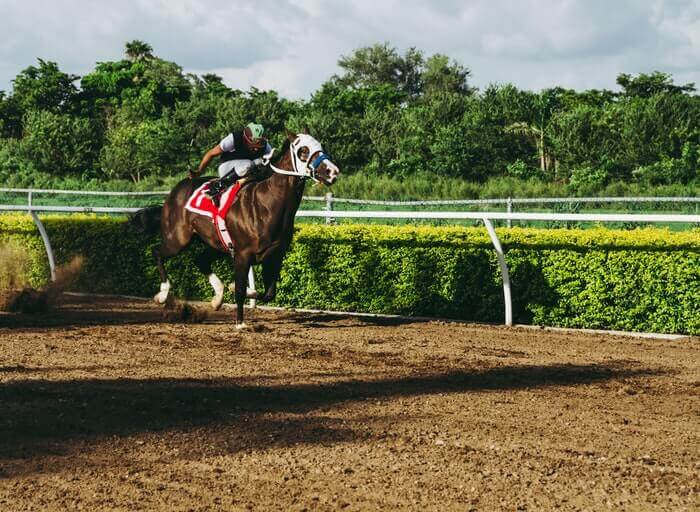Golf has been rapidly rising in popularity over the years. That means that more people are watching the iconic game than ever before. They’re also betting on it.
The appeal of golf betting isn’t just that it’s extremely fun; it can also be quite lucrative. Just as there are hundreds of variations when it comes to playing golf, there are also just as many ways you can bet on the sport.
Whether you’re a beginner or a seasoned veteran, you’re sure to learn something from this complete guide to golf betting. It’s packed with expert golf betting tips, effective strategies, an introduction to different types of golf bets, and other useful information.
Let’s get started.
Ways of Betting on Golf
There are lots of ways to bet on golf. Here’s a brief introduction to a few of the most popular golf bet markets.
To win
This is the simplest type of golf bet, and thus the easiest to get into. But just because the masses bet like this type doesn’t mean it isn’t worthwhile for more serious punters, too. As a matter of fact, it typically features excellent betting odds – the ‘worst’ you’re likely to encounter would be 7 to 1, which still translates to a handsome $70 payout on a successful $10 bet.
The rules of a ‘to win’ bet are simple – just pick a player participating in an upcoming tournament and wager your money on them winning. And if they do go on to win, well, you’ll win your bet. Simple as that!
Pro tip: Because of how the odds and payouts work, don’t be reluctant to bet smaller amounts on several players. Even if the lowest-priced of those players wins, you could still make a decent profit.
Versus the field
This form of golf betting is the opposite of ‘to win’ betting. Usually, you’ll only see this option available in the later rounds of a tournament. Here you wager your money on a specific golfer not winning.
To illustrate with an example, suppose Rory Mcllroy is entering the last round of a PGA tour event like the FedEx Cup with a three-stroke lead, meaning he is the favourite to win the tournament. Likely, a ‘versus the field’ bet will emerge offering odds on him not winning. If you wager in that bet, it won’t matter who else claims the prize. As long as he loses, you win.
Head-to-head
Here, you don’t make predictions on which golfer(s) will win or lose a game. Rather, the line is drawn between which of two selected golfers will perform better than the other. For instance, let’s say that both Jason Day and Matt Wallace are competing in the same event. Sportsbooks set lines on a head-to-head bet on the two players.
If you place your wager on Day, it doesn’t matter if he goes on to win the tournament or even if he wins at all. All that will be needed for you to win your bet is for him to leave the tournament in a better position than Wallace.
This type of golf betting is excellent if you want to capitalize on your expert knowledge of certain players and open yourself to even more lucrative betting options during a golf tournament.
Futures
Here, bets usually take a longer time to play out. A future bet could mean, for example, wagering on who will win the European Tour Championship before the season starts. However, the most notable aspect that sets this apart from other types of bets is that the payout isn’t fixed, with the betting odds subject to variation as the chances of who is or isn’t going to win changes.
Of course, you have many more options for futures bets than simply picking who wins the entire championship. There are tons of other predictions on which you can wager. Nonetheless, championship winner predictions are the most popular type; they’re the options you’ll find easily on most sportsbooks.
To illustrate with an example of how a futures bet plays out, assume in an upcoming PGA tour you place your $100 wager on Ryan Palmer taking home the trophy. Your current betting odds are 6 to 1, translating to a payout of $600 if you win.
However, as the season goes, he seems to be unable to play his best. This lowers his predicted chances of winning. Your golf betting odds in comparison change accordingly, shifting to 12 to 1. Nonetheless, somehow he manages to recover in the later stages and is crowned champion at the end of the year. Instead of the initially expected $600, you win $1,200.
Propositions
Propositions (or props for short) encompass every type of golf betting on outcomes that typically don’t tend to have a direct impact on the course of a golf tournament. For instance, such bets could be on such things as:
- How many birdies will be made during a round?
- Will a hole in one be made at the 18th hole?
- Will the winner of the tournament be aged under 30 or over?
- How many strokes will a specific player take on a given hole?
- What will be the lowest score for the tournament?
Prop bets are usually made for fun, but they can also be quite lucrative. If you plan on participating in a prop bet with the intention of making a profit, make sure to opt for one that requires some skill and prior knowledge, rather than one where a win is completely up to chance.
Golf parlay
In a parlay, a number of different golf wagers are combined into one large bet. In order to win a parlay, all the sub-bets have to be won as well. The more bets you add to your parlay ticket, the higher your potential payout will be, but…the higher the risk of failure. An intelligent bettor should always calculate the various odds and accurately stack them against the total payout to better assess whether a combination may be actually worthwhile or not.
If you’re an inexperienced golf bettor, it’s better to avoid a parlay. Doing the proper maths and research is a lot of added work, with little or no upside for most betters.
Pro tip: Employed the right way, betting a parlay can be quite lucrative. To increase your odds of winning, look for outcomes that are correlated. For instance, if you make a proposition bet that it will be windy, consider how those conditions will affect the players. There might be a certain player who performs poorly in windy conditions, so you can bet against them.
Important Tips and Strategies
Below are some really useful free golf betting tips and strategies that will help you enhance your betting skills much more quickly and improve your chances of winning.
Common Golf Terms
Some readers here might be complete beginners to golf, and properly understanding the language used in the game is beneficial when it comes to golf betting. Here are some commonly used terms and their definitions.
Stroke: Refers to any swing of the golf club used to strike the golf ball. The fewer strokes used to get the ball in the hole, the better.
- Putt: A gentle stroke that hits the ball across the green towards the hole.
- Par: The expected number of strokes a player may take to finish a hole, e.g., par-4 denoting four strokes for a hole.
- Bogey: Denoting score one stroke over the par score.
- Birdie, Eagle, Albatross: Denoting score one stroke, two strokes, and three strokes under par respectively.
- Bunker: Name for a sand-filled obstacle on a golf course.
- Ace: Common term for a hole in one.
Parting shot
Golf betting can make you money, but if you’re new, it’s important that you focus on learning the ropes and enhancing your skills rather than thinking too heavily about profits. Don’t be afraid to experiment and try new markets and strategies. The more experience you gain, the better you get at winning.
We hope you found this guide to be informative and helpful. Be sure to share it with others who may find it helpful. Have any questions or further tips you would like to share? Feel free to drop them in the comments below.
FAQ
Who is the best golf tipster?
A tipster is someone who regularly provides information on the likely outcome of a golf event. However, there are only a few who can boast having a certain degree of consistency in their predictions. Among them is Golf Insider. Since it started tipping back in 2014, it has made more than 2,000 points in profit – an unrivaled feat in golf tipping.
What is two-ball betting in golf?
Two-ball betting is similar to head-to-head betting. The bet duration is limited to a single round, and you predict which of the players in the two-person grouping would achieve the lowest golf score. A common variation of this is three-ball betting, where the prediction is made about a three-player grouping.


